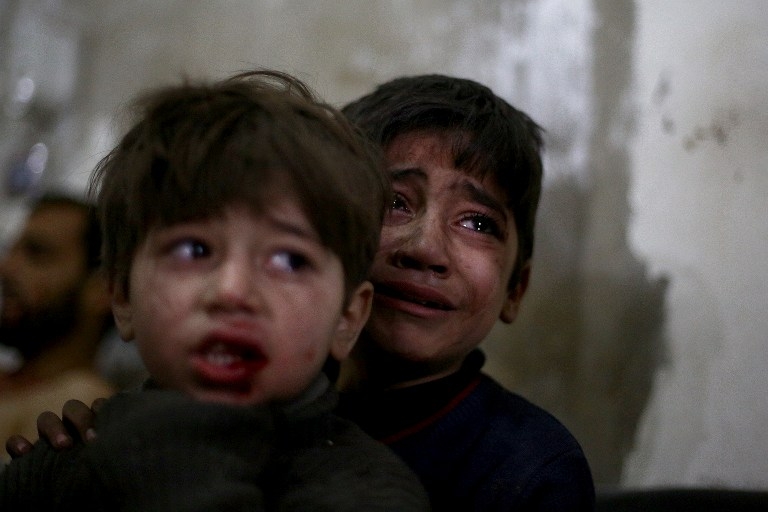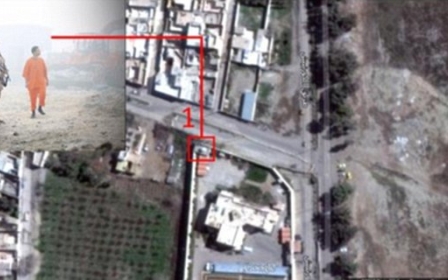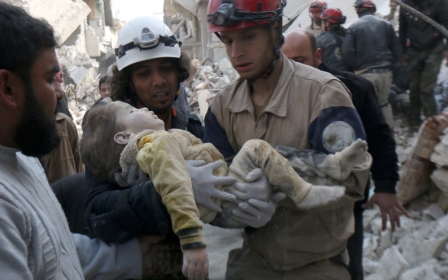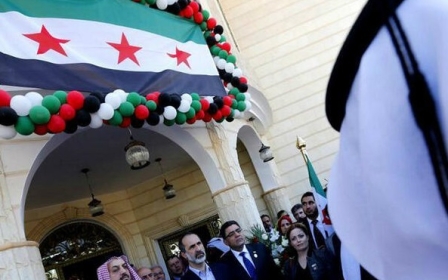At least 82 dead as rebels, Assad forces trade fire around Syrian capital

Dozens of Syrian government strikes on an opposition-held area near Damascus have killed at least 82 people, a monitor said Friday, in the deadliest such onslaught since November.
The Syrian Observatory for Human Rights, a UK-based monitor, said the new toll in the Thursday air strikes on the Eastern Ghouta region included at least 18 children.
The government's assault, which also killed 16 rebel fighters, involved more than 60 air strikes, as well as surface-to-surface missiles, the Observatory said.
It was the deadliest aerial attack by government forces since 25 November, when 95 people were killed in air strikes on Raqqa, the self-proclaimed capital of the Islamic State group.
Thursday's strikes came after a rebel group in Eastern Ghouta fired a barrage of at least 120 mortar rounds and rockets into Damascus, killing 10 people, among them a child.
The Syrian Observatory for Human Rights said 12 children were among those killed in the opposition-held Eastern Ghouta region outside Damascus, and an AFP photographer there described chaotic scenes.
The group said at least 140 people were also injured in the strikes, adding that government forces had also fired surface-to-surface missiles at the area.
In the capital, meanwhile, a barrage of at least 120 rockets and mortar rounds fired by rebel forces killed 10 people, among them a child.
The barrage left usually busy parts of the city deserted. In the city centre, traffic was light and many people stayed home from work.
"If the terrorists think that by shelling Damascus they will ease the pressure on them, they are making a big mistake," a senior military official said, speaking on condition of anonymity.
"We will continue to hunt them down and destroy them."
Rebel group Jaysh al-Islam (Army of Islam) warned two days earlier that it would launch a barrage of missiles at the capital in response to deadly air strikes on rebel-held Douma in Eastern Ghouta.
The group's leader, Zahran Alloush, said on Twitter that the attacks would continue until Damascus is “cleansed” of Syrian troops and militia, announcing the start of a campaign of “hundreds of rockets” on military targets in Syria’s capital Damascus at 5.30am local time on Thursday.
"In response to the systematic air strikes the regime has launched on the city of Douma and the rest of the towns of East Ghouta, and because the capital has become overcrowded with military sites…and rocket launchers owned by the regime, we announce that the entire city of Damascus is a military zone and a stage for military operations," he announced on twitter on Tuesday.
"We ask all civilians, members of diplomatic envoys and school and university students not to approach any regime headquarters and not to walk around the city’s streets during daylight hours."
Late on Thursday, however, he announced that “the curfew in Damascus has been lifted – this is only until the first bombing by the regime on civilians in Ghouta” suggesting a resumption of hostilities would lead to its reinstatement.
Jaish al-Islam struck the capital, including the wealthy Midan area, with at least 38 rockets on 25 January, killing seven people, a monitoring group said, in one of the heaviest attacks on Damascus in over a year.
The group said the assault was in response to the Syrian military’s aerial bombardment of rebel-held areas near the capital.
The Syrian military has escalated bombardments of the nearby areas in the past week. In Douma, northeast of Damascus, dozens of civilians have been killed and wounded this week by airstrikes. On Wednesday, activists said that a government attempt to invade the suburb was repelled by anti-Assad forces.
Fierce clashes were also reported in the rebel-held Jobar in northeast Damascus, with at least 11 Free Syrian Army fighters killed.
Alloush said this morning that the regime “dogs” would taste what it is inflicting on the civilians of East Ghouta, the area largely held by rebels near Damascus.
Jaish al-Islam has warned civilians to avoid all regime positions and vehicles and to observe a curfew “until further notice”.
Edward Dark, a Syrian journalist and commentator based in Aleppo, told Middle East Eye that the methods used by both the regime and rebels against civilian areas was ultimately futile.
"It’s just this strange strategy of the Syrian civil war where you target civiilians who happen to be in the other side's areas – the areas of control don’t actually delineate any affiliation for the people there," he said. "The people happen to be living in that area or the other don’t necessarily support whatever side’s there.”
He pointed out that Jaysh al-Islam had conducted a similar campaign only the previous week.
“It’s the second time they’ve done it with specific threats," he said. "The last time they did the exact same thing, shelled most neighbourhoods of Damascus city, randomly.”
In spite of the repeated bombardment, Dark told MEE that Damascus was still essentially unassailable.
“The fall of Damascus is out of the question, without any foreign intervention," he said. "And that’s been the case for a long time, ever since late 2012.”
In a press conference last week, Alloush dismissed the opposition talks taking place in Russia as a "conspiracy."
“There is no relationship between our operation and the Moscow conference," he said. "We are not concerned with these things – we consider them a conspiracy against our nation.”
Middle East Eye propose une couverture et une analyse indépendantes et incomparables du Moyen-Orient, de l’Afrique du Nord et d’autres régions du monde. Pour en savoir plus sur la reprise de ce contenu et les frais qui s’appliquent, veuillez remplir ce formulaire [en anglais]. Pour en savoir plus sur MEE, cliquez ici [en anglais].




